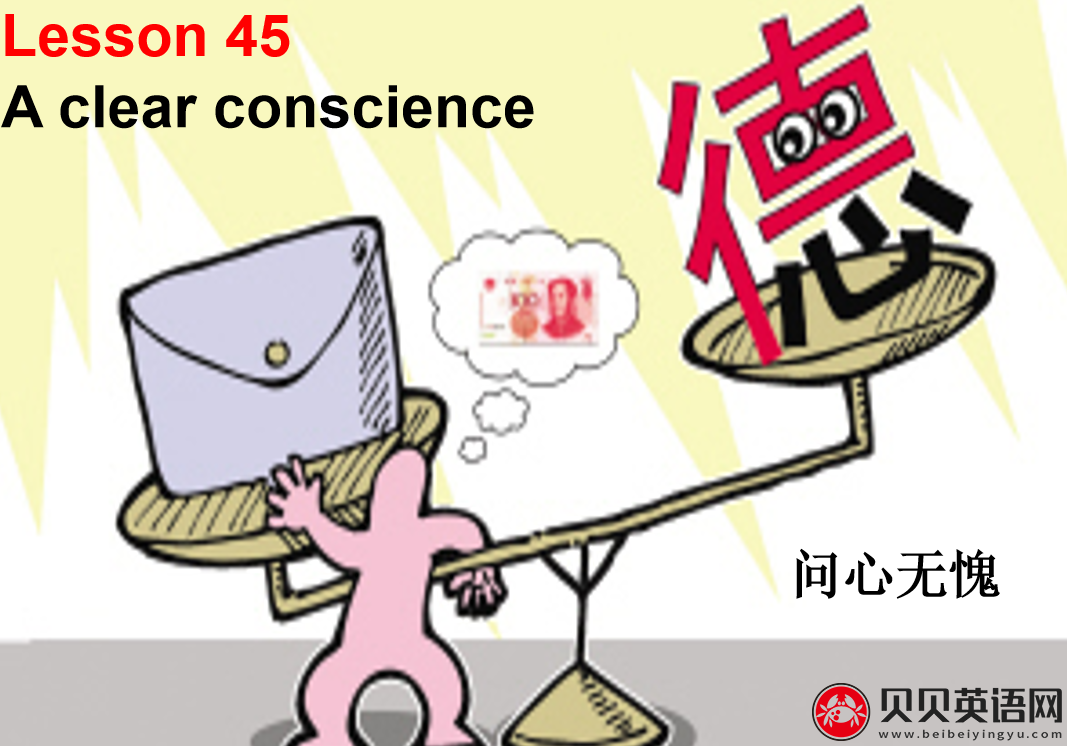欢迎访问贝贝英语网!

The whole village soon learnt that a large sum of money had been lost.
主从复合句,that引导宾语从句。
(1)village在这里为总称,指“村民”,the whole village指“全村的人”,后面通常跟单数动词(有时也可视为复数)
eg:这消息使全村的人兴奋。
The whole village was excited by the news.
(2)learn在句中的含义为“获悉”、“得知”:
我刚刚得知她病了。
I've just learnt that she was ill.
3.Sam Benton, the local butcher, had lost his wallet while taking his savings to the post office.
简单句。while 引导的现在分词作伴随状语
…while he was taking his savings to the post office。现在分词这样用的前提是两个动词的主语是同一个,并且这两个动作通常是同时发生的.
他一边打扫房间一边听音乐。
He listened to music while cleaning the room.
如果是主语不一致则必须用从句:
我打扫房间时,他在听音乐
He listened to music while I was cleaning the room.
Sam was sure that the wallet must have been found by one of the villagers, but it was not returned to him. Three months passed, and then one morning, Sam found his wallet outside his front door. It had been wrapped up in newspaper and it contained half the money he had lost, together with a note which said: 'A thief, yes, 'but only 5o per cent a thief!'